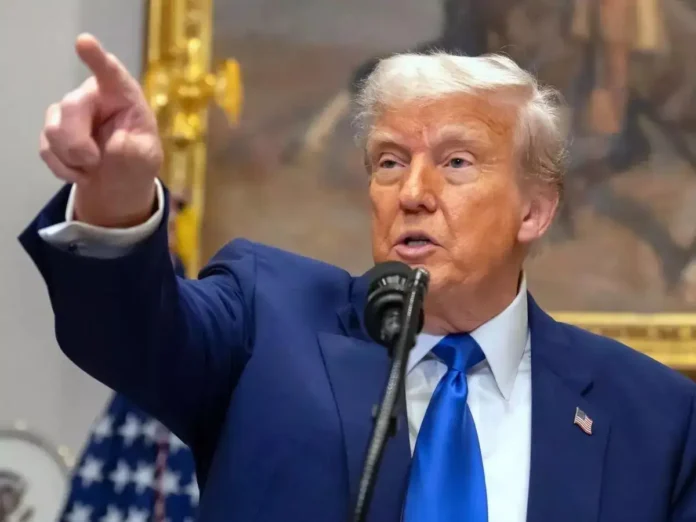Former U.S. President Donald Trump doubled down on his claim of playing a key role in facilitating a ceasefire between India and Pakistan, while cautioning about the looming threat of nuclear conflict—referred to by him as the “very nasty N-word.” In a televised interview, Trump underscored the significance of the intervention, saying that without action, the two South Asian neighbors were on the brink of a dangerous escalation.
Background: Tensions and Operation Sindoor
Tensions between India and Pakistan flared after a terrorist attack in Pahalgam, Jammu and Kashmir, which claimed the lives of several civilians and security personnel. In retaliation, India launched a series of precision airstrikes dubbed “Operation Sindoor,” targeting multiple terrorist camps across the Line of Control (LoC) and inside Pakistan-occupied Kashmir.
Pakistan responded with artillery shelling and increased military activity along the border, raising fears of a broader armed conflict. This sudden escalation drew international concern, including statements from the United Nations urging restraint on both sides.
Trump’s Claim and Official Responses
Donald Trump, speaking on his social media platform and later in a Fox News interview, stated that he personally intervened to bring about a ceasefire. He claimed that U.S. diplomatic engagement with leaders in both New Delhi and Islamabad was instrumental in halting the hostilities.
Trump praised both Indian Prime Minister Narendra Modi and Pakistani Prime Minister Shehbaz Sharif for what he described as “strong and level-headed leadership.” According to him, backchannel diplomacy initiated by his administration played a crucial role in de-escalating the situation.
However, India’s Ministry of External Affairs maintained that the ceasefire was the outcome of direct military communication between the Directors General of Military Operations (DGMOs) of both countries. Indian officials stated there was no foreign mediation involved, a stance that has often reflected India’s consistent policy of opposing third-party involvement in bilateral matters with Pakistan.
Despite this, statements from U.S. officials—including Secretary of State Marco Rubio and Vice President JD Vance—indicated that the United States had engaged in high-level talks with both countries in an effort to prevent further escalation.
The ‘N-Word’ Comment
During the interview, Trump raised eyebrows when he referred to the “N-word,” which he quickly clarified meant “nuclear.” He emphasized the potential global consequences if the conflict had spiraled into a nuclear confrontation, calling it a scenario “the world cannot afford.”
His phrasing sparked brief confusion, but the former president explained that he deliberately used the term to highlight how serious and dangerous nuclear conflict remains in the modern era, especially between two armed neighbors with a long history of hostilities.



